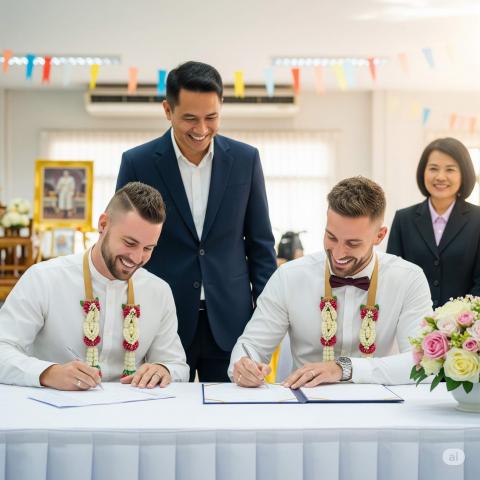Navigating Child Custody in Thailand for Foreigners
Ensuring your child's well-being after a separation or divorce in Thailand requires expert legal guidance. At PS Law & Business, we help foreign nationals understand and navigate Thai child custody laws to protect their parental rights and secure their child's future.
Understanding Child Custody in Thailand
Child custody in Thailand, often referred to as "parental power," involves the rights and obligations of parents regarding their child's upbringing, education, health, and general welfare. The Thai legal system prioritizes the "best interests of the child" above all else in any custody determination.
Types of Custody in Thailand
- Sole Custody: One parent is granted exclusive legal and physical custody, making all major decisions for the child.
- Joint Custody: Both parents share legal and physical custody, making important decisions together. This is becoming increasingly common, especially when parents can reach a mutual agreement.
How is Child Custody Determined?
Child custody in Thailand can be established in two primary ways:
- Mutual Agreement: If parents can agree on custody terms, they can register this agreement at the local district office (Amphur), often as part of a mutual consent divorce. This is generally the fastest and least contentious method.
- Court Decision: If parents cannot reach an agreement, a petition for child custody can be filed with the Thai Family Court. The court will consider various factors to determine what is in the child's best interests, including:
- The child's emotional bond with each parent.
- Each parent's moral fitness and conduct.
- The stability and suitability of the living environment.
- Financial capability and ability to provide for the child.
- The child's preference (if of sufficient age and maturity).
Special Considerations for Unmarried Parents
In Thailand, if parents are not married, the mother automatically receives sole custody of the child. For the father to obtain parental rights or joint custody, he must legally acknowledge paternity, either through mutual agreement with the mother and registration at the district office, or by court order through a legitimation process. Our firm can assist fathers in establishing their legal relationship with their child and pursuing custodial rights.
International Child Custody and Abduction
For foreign nationals, international aspects of child custody can be complex. Thailand is a signatory to the Hague Convention on the Civil Aspects of International Child Abduction. This convention aims to prevent the unlawful removal or retention of children across international borders. If you are concerned about international child abduction or need to enforce a foreign custody order in Thailand, our experienced lawyers can provide crucial assistance and guide you through the necessary legal steps.
Our Child Custody Services
PS Law & Business offers comprehensive legal services for child custody matters in Thailand, including:
- Negotiating and drafting child custody agreements.
- Representing clients in Family Court for contested custody cases.
- Assisting unmarried fathers with child legitimation and custody petitions.
- Advising on visitation rights for non-custodial parents.
- Handling international child abduction cases under the Hague Convention.
- Providing guidance on child support obligations and enforcement.
We understand the emotional challenges involved in child custody disputes and are committed to providing compassionate, professional, and effective legal representation to protect your child's future and your parental rights.
FAQs about Child Custody in Thailand
Q: How long does a child custody case take in Thailand?
A: The duration varies depending on whether parents can reach a mutual agreement or if the case goes to court. Mutual agreements can be relatively quick, while contested court cases can take several months to over a year.
Q: Can a foreign father get sole custody of a child in Thailand?
A: Yes, it is possible for a foreign father to obtain sole custody. The Thai court will prioritize the child's best interests and assess the father's fitness and ability to provide a suitable environment, regardless of nationality.
Q: What are visitation rights in Thailand?
A: Even if one parent has sole custody, the non-custodial parent typically retains visitation rights. The court or parental agreement will outline the schedule and conditions for these visits, ensuring the child maintains contact with both parents.
Q: Is Thailand part of the Hague Convention on International Child Abduction?
A: Yes, Thailand became a signatory to the Hague Convention on International Child Abduction on April 1, 2016, which helps in the swift return of children wrongfully removed from their habitual residence.
Q: Do I need a lawyer for a child custody case in Thailand?
A: While it's possible to attempt negotiation without a lawyer, it is highly recommended to engage an experienced Thai family law attorney. They can ensure your rights are protected, navigate the complex legal procedures, and advocate for the best outcome for your child.




